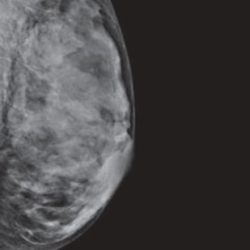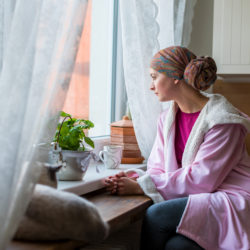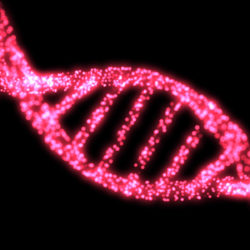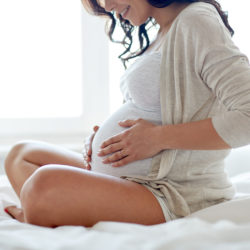Risk Factors For Breast Cancer
While an exact cause for breast cancer is still unknown, research has revealed a number of factors that impact our risk.
Risk Factors for Breast Cancer You Cannot Control.
Although we are unable to modify the risks associated with the uncontrollable factors, it is important to understand how they may impact an individual’s risk for breast cancer.

Sex

Aging

Family History

Breast Density

Previous Cancer History

Genetic Mutations

Menstruation Menopause
Risk Factors for Breast Cancer You Can Control.
An estimated 30 percent of breast cancer cases are preventable through lifestyle changes. Most breast cancers are estrogen-related which is why many of the risk factorsAnything that increases or decreases a person’s chance of developing a disease. we can control involve keeping estrogen levels low. Although exposures that influence risk accumulate throughout a woman’s life, research suggests that early life exposures during breast development may be particularly critical.

Nutrition

Alcohol

Breast Feeding

Obesity

Smoking

Contraceptives

Exercise

Pregnancy

HRT
Sources
- Islami F, Goding Sauer A, Miller KD, et al. Proportion and number of cancer cases and deaths attributable to potentially modifiable risk factors in the United States. CA Cancer J Clin. 2018.
- American Cancer Society. Breast Cancer Facts & Figures 2024-2025. Atlanta: American Cancer Society, Inc. 2024.
- Shiyanbola OO, Arao RF, Miglioretti DL, et al. Emerging Trends in Family History of Breast Cancer and Associated Risk. Cancer Epidemiol BiomarkersA distinct biochemical, genetic, or molecular characteristic or substance that is an indicator of a particular biological condition or process. Prev. 2017;26(12):1753-1760
- Kramer I, Schaapveld M, Oldenburg HSA, et al. The influence of adjuvant systemic regimens on contralateral breast cancer risk and receptor subtype. J Natl Cancer Inst. 2019;30:30.
- Kuchenbaecker KB, Hopper JL, Barnes DR, et al. Risks of Breast, Ovarian, and Contralateral Breast Cancer for BRCA1 and BRCA2 Mutation Carriers. JAMA. 2017;317(23):2402-2416.
- McCormack, V., dos Santos Silva. Breast Density and Parenchymal Patterns as Markers of Breast Cancer Risk: A Meta-analysis. Cancer Epidemiol Biomarkers Prev June 1 2006 (15) (6) 1159-1169.
- Schwartz GF, Hughes KS, Lynch HT, et al. Proceedings of the International Consensus Conference on Breast Cancer Risk, Genetics, & Risk Management, April, 2007. Cancer. 2008.
- Collaborative Group on Hormonal Factors in Breast Cancer. MenarcheThe first occurrence of menstruation., menopause, and breast cancer risk: individual participant meta-analysis, including 118 964 women with breast cancer from 117 epidemiologicalThe study, assessment, and analysis of public health concerns in a given population; the tracking of patterns and effects of diseases. studies. Lancet Oncol. 2012;13(11):1141-1151.
- Chlebowski RT, et al “Dietary modification and breast cancer mortality: long-term follow-up of the Women’s Health Initiative randomized trial” J Clin Oncol 2020; DOI: 10.1200/JCO.19.00435.
- Jiralerspong S, Goodwin PJ. Obesity and Breast Cancer PrognosisThe expected or likely outcome of a disease, usually based on a statistical analysis of large groups of patients.: Evidence, Challenges, and Opportunities. J Clin Oncol. 2016;34(35):4203-4216.
- Smith, Alma J et al. “The effects of aerobic exercise on estrogen metabolism in healthy premenopausal women.” Cancer epidemiology, biomarkers & prevention: a publication of the American Association for Cancer Research, cosponsored by the American Society of Preventive Oncology vol. 22,5 (2013).
- McDonald JA, Goyal A, Terry MB. Alcohol Intake and Breast Cancer Risk: Weighing the Overall Evidence. Curr Breast Cancer Rep. 2013;5(3):10.1007/s12609-013-0114-z. doi:10.1007/s12609-013-0114-z
- Jones, M.E., Schoemaker, M.J., Wright, L.B. et al. Smoking and risk of breast cancer in the Generations Study cohort. Breast Cancer Res 19, 118 (2017).
- Chakravarthi, Balabhadrapatruni V S K, and Sooryanarayana Varambally. “Targeting the link between late pregnancy and breast cancer.” eLife vol. 2 e01926. 31 Dec. 2013.
- Anstey, Erica H, and Ginny Kincaid. “Breastfeeding for Cancer Prevention.” Centers for Disease Control and Prevention, Centers for Disease Control and Prevention, 1 Aug. 2019.
- March,L., Skovlund,C., Hannaford,P. et al., Contemporary Hormonal Contraception and the Risk of Breast Cancer.The New England Journal of Medicine. Dec 7, 2017.
- Ravdin,P., Cronin, K.,Howlader, N., et al. The Decrease in Breast-Cancer IncidenceIncidence refers to the occurrence of new cases of disease or injury in a population over a specified period of time. in 2003 in the United States. The New England Journal of Medicine. Apr 19, 2007.